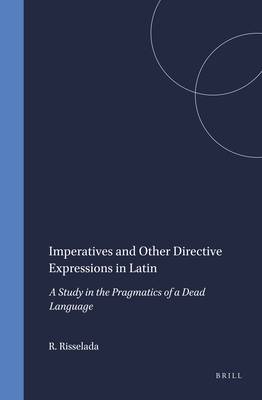
- Afhalen na 1 uur in een winkel met voorraad
- Gratis thuislevering in België vanaf € 30
- Ruim aanbod met 7 miljoen producten
- Afhalen na 1 uur in een winkel met voorraad
- Gratis thuislevering in België vanaf € 30
- Ruim aanbod met 7 miljoen producten
Zoeken
Imperatives and Other Directive Expressions in Latin
A Study in the Pragmatics of a Dead Language
Rodie Risselada
€ 189,45
+ 378 punten
Omschrijving
As the recent hausse in pragmatic studies shows, linguistic attention is increasingly focussing on aspects of language use. Making use of recent insights developed within speech act theory, discourse analysis, and sociolinguistics, this book deals with the various expressions that were used in Latin to per-form so-called directive speech acts, i.e. orders, requests, advice, proposals, sug-gestions, etc. On the basis of a large corpus of comedy, correspondence, and instruction texts the expressions concerned (imperatives, subjunctives, future indicatives, as well as modal expressions and vari-ous other lexical expressions of directivity) are investigated against the background of the verbal interactions in which they typically occur. As regards its contribution to Latin linguistics, the present study adds a number of re-finements to our knowledge of this well-documented lan-guage, for instance with respect to the reference of the subjects of the so-called impera-tive II ending in -to, the conventionalized speech act functions of interrogative quid and quin directives, and the diachronic process of conventionalization of velim requests.
Specificaties
Betrokkenen
- Auteur(s):
- Uitgeverij:
Inhoud
- Aantal bladzijden:
- 362
- Taal:
- Engels
- Reeks:
- Reeksnummer:
- nr. 2
Eigenschappen
- Productcode (EAN):
- 9789050632065
- Verschijningsdatum:
- 1/01/1993
- Uitvoering:
- Hardcover
- Formaat:
- Genaaid
- Afmetingen:
- 165 mm x 241 mm
- Gewicht:
- 861 g

Alleen bij Standaard Boekhandel
+ 378 punten op je klantenkaart van Standaard Boekhandel
Beoordelingen
We publiceren alleen reviews die voldoen aan de voorwaarden voor reviews. Bekijk onze voorwaarden voor reviews.








